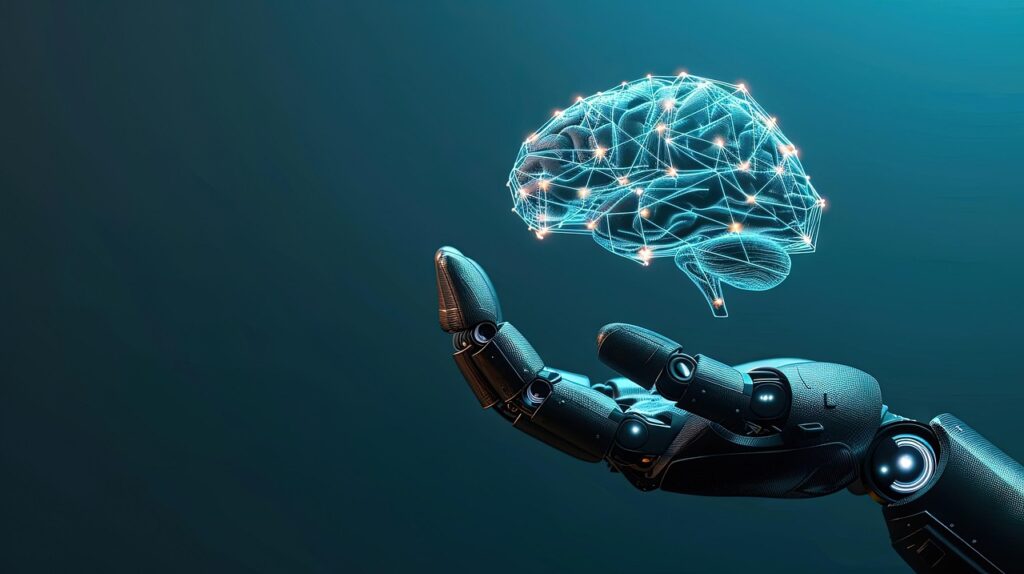Artificial Intelligence (AI) has transformed numerous industries, and marketing is no exception. From personalized customer experiences to predictive analytics, AI is reshaping how businesses engage with their audiences. Brands that leverage AI-driven marketing strategies gain a competitive edge by automating tasks, analyzing vast amounts of data, and optimizing campaigns for better performance. In this article, we’ll explore how AI is revolutionizing modern marketing strategies and what it means for businesses looking to stay ahead.
One fascinating application of AI extends beyond marketing into content creation, such as using an AI music generator to produce background scores for advertisements and digital campaigns. While AI-generated music is just one example, the broader influence of artificial intelligence in marketing is undeniable.
How AI is Transforming Marketing
1. Personalized Customer Experiences
Consumers expect highly personalized interactions with brands. AI enables businesses to analyze customer data, track behavior, and deliver tailored content in real-time. Machine learning algorithms assess purchasing history, browsing patterns, and social media interactions to provide personalized recommendations, emails, and advertisements.
For example, e-commerce giants like Amazon and Netflix use AI-powered recommendation engines to suggest products and content based on user preferences, increasing engagement and conversions.
2. AI-Powered Chatbots & Customer Support
AI-driven chatbots enhance customer service by offering instant responses to inquiries, handling complaints, and guiding users through the buying process. These chatbots utilize Natural Language Processing (NLP) to simulate human-like conversations, providing a seamless experience.
Brands like Sephora and H&M use AI chatbots to help customers find products, receive beauty advice, or get personalized fashion recommendations—all without human intervention.
3. Predictive Analytics for Better Decision-Making
AI’s ability to analyze historical data and predict future trends is a game-changer for marketers. Predictive analytics helps businesses make informed decisions about inventory, pricing, and marketing campaign effectiveness.
For example, AI-powered tools can identify which customers are most likely to churn and allow marketers to implement retention strategies before losing them.
4. Content Creation & Optimization
AI-generated content is becoming more sophisticated, with tools like GPT-powered writing assistants helping brands produce high-quality blog posts, social media captions, and even ad copy. Additionally, AI can analyze content performance and suggest improvements to increase engagement.
Some companies are even using AI to create video scripts, design graphics, and optimize SEO-friendly content based on trending keywords.
5. Automated Ad Campaigns & Targeting
AI-powered advertising platforms analyze user behavior to automatically adjust bidding strategies, choose the best-performing ad creatives, and target the right audience segments.
Platforms like Google Ads and Facebook Ads utilize AI to maximize ad performance by continuously optimizing campaigns based on real-time data.
6. Voice Search & AI Assistants
With the rise of AI-powered voice assistants like Siri, Alexa, and Google Assistant, voice search optimization has become essential. Marketers must now adapt their content to fit conversational search queries and long-tail keywords, ensuring they appear in voice search results.
Brands are also developing voice-activated shopping experiences, allowing customers to order products through voice commands.
7. AI in Social Media Marketing
AI-driven social media tools help brands analyze audience engagement, schedule posts, and even generate content ideas.
For instance, AI algorithms determine the best times to post, suggest hashtags, and analyze sentiment to ensure brands stay connected with their audience in meaningful ways.
The Future of AI in Marketing
As AI continues to advance, marketers can expect even more automation, deeper insights, and greater efficiency. The key to success lies in integrating AI with human creativity—leveraging data-driven insights while maintaining authentic and emotionally resonant messaging.
Brands that embrace AI in their marketing strategies will not only improve customer experiences but also drive higher ROI and long-term business growth.
Conclusion
Artificial Intelligence is reshaping modern marketing strategies, enabling businesses to deliver personalized experiences, optimize campaigns, and make data-driven decisions. Whether it’s through predictive analytics, AI chatbots, or automated content creation, AI is no longer a luxury—it’s a necessity for staying competitive.
By embracing AI-powered tools, brands can streamline operations, enhance customer interactions, and unlock new opportunities for growth in the ever-evolving digital landscape. The future of marketing is AI-driven, and businesses that adapt now will thrive in the years to come.

